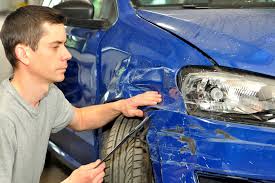In the realm of the automotive industry, the role of a kfz gutachter hamburg is often overlooked yet crucial. Whether you’re buying, selling, insuring, or simply curious about the value of your vehicle, a car appraiser plays a vital role in providing accurate assessments. In this article, we delve into the intricacies of what a car appraiser does, how they operate, and why their expertise is invaluable.
What is a Car Appraiser? A car appraiser is a qualified professional tasked with determining the value of vehicles. Their assessments are based on a combination of factors including the vehicle’s condition, market demand, depreciation, and prevailing economic trends. These evaluations are essential for various purposes such as insurance claims, resale value, legal disputes, and financial transactions.
Roles and Responsibilities: Car appraisers undertake a range of responsibilities, including:
- Vehicle Inspection: They conduct thorough inspections of vehicles to assess their condition, mileage, maintenance history, and any existing damages.
- Market Analysis: Car appraisers stay abreast of market trends, sales data, and industry insights to accurately gauge the value of vehicles within a specific geographical area or market segment.
- Documentation: They meticulously document their findings, including photographs, written reports, and supporting evidence, to substantiate their appraisals.
- Client Communication: Effective communication with clients is paramount. Car appraisers must explain their valuation process, methodology, and findings clearly and transparently to clients, addressing any questions or concerns that may arise.
- Compliance: Adherence to industry standards, ethical guidelines, and regulatory requirements is non-negotiable for car appraisers. They must uphold professional integrity and objectivity in their assessments.
Qualifications and Skills: Becoming a car appraiser requires a blend of education, training, and hands-on experience. While specific requirements may vary by jurisdiction, common qualifications and skills include:
- Education: A background in automotive technology, mechanical engineering, or a related field is advantageous. Some car appraisers may hold certifications or degrees in automotive appraisal.
- Training: Completing formal training programs or apprenticeships under seasoned professionals helps aspiring appraisers hone their skills in vehicle evaluation, market analysis, and customer service.
- Certification: Many jurisdictions require car appraisers to obtain professional certification from accredited organizations such as the International Automotive Appraisers Association (IAAA) or the American Society of Appraisers (ASA).
- Attention to Detail: Meticulous attention to detail is essential for conducting accurate inspections and documenting findings comprehensively.
- Analytical Skills: Strong analytical abilities enable car appraisers to interpret market data, assess risk factors, and derive precise valuations.
- Communication Skills: Effective verbal and written communication skills facilitate clear and concise interactions with clients, insurers, dealerships, and other stakeholders.
Conclusion: In the dynamic landscape of the automotive industry, the role of a car appraiser holds significant importance. From safeguarding consumers’ interests to facilitating fair transactions, their expertise contributes to the integrity and transparency of the market. By understanding the responsibilities, qualifications, and skills required of car appraisers, individuals can appreciate the value they bring to the automotive ecosystem.


